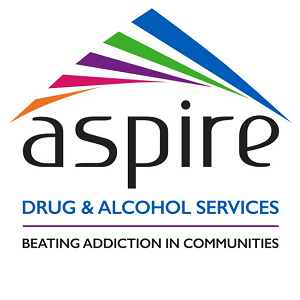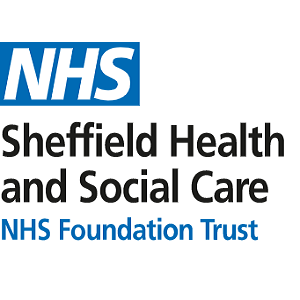Drug & Alcohol Rehab in Rotherham

How Does Rehab Work?
The process of rehabilitation helps individuals regain their mental health and their overall quality of life. Rehab involves patient-focused therapy in which behaviours involving drug and alcohol dependence are targeted, coping strategies introduced, and support services provided. Individuals are taught how to avoid relapse with the option of entering an inpatient or an outpatient programme. Inpatient rehabilitation requires that individuals remain at a chosen facility or recovery centre full-time. Outpatient rehab programmes have clients maintain their day to day life while attending counselling sessions and group work.
What Happens During Residential Rehab?
When you are ready to enter rehab for drug and/or alcohol dependence, it is a brave step towards recovery. Although achieving balance and breaking the cycle of addiction takes some work, it can be achieved. To help you make an informed decision concerning treatment, we look at the options available and what happens during rehab.
Rehab occurs in stages. It starts with a medical assessment. Individuals must be professionally assessed to help staff understand the nature of your dependence, its history and comorbid disorders (such as anxiety or depression). The information obtained from the assessment is used to create a unique therapy programme for you. Because every person is different, a personalised treatment plan will help provide a more tailored programme that meets your needs and requirements.
Detox is an important phase of a recovery programme. It involves the safe removal of drugs and/or alcohol from the body. When detox is done with medical supervision, withdrawal symptoms can be controlled, and their severity managed. This can significantly improve the chances of success and minimise relapse.
Rehab includes meeting with a therapist for private & group sessions, participation in skill-building activities as with an inpatient or residential rehab, or group meetings that are common with outpatient 12 Step programmes. We look at the different phases of rehab in greater detail.
1. Assessment

A complete medical assessment is an initial step to receiving the appropriate treatment in rehab. If you are looking into inpatient treatment, you can expect a telephone assessment by an admissions team. The telephone assessment will provide the treatment facility with the information needed to develop a unique treatment plan. The medical support staff will also have the information to manage individuals through the process of detox.
When you wish to pursue treatment for drug and alcohol addiction, a medical assessment should be completed. Assessments will guide therapy because it provides staff with the information, they need to develop a tailored treatment plan or advise on the appropriate intervention.
2. Detox

Detox involves the cessation of drugs and alcohol from the body. With professional assistance, it is safely facilitated and is most commonly monitored in a private rehab because of risks associated with withdrawal.
The reason medical detoxification from substances is advised is owed to the difficulties and the nature of withdrawal symptoms that may occur during this time. Without reliance on a professional service and medical attention, the risk of relapsing is heightened. Individuals who receive detox and an assessment will be required to participate in a therapeutic programme that entails residential rehab or outpatient services.
3. Therapy

Therapy is sought when the body is rid of substances including alcohol. The choice of being assigned to an inpatient or an outpatient service will depend on the individual assessment, finances, and life commitments. Therapy provided in treatment ranges from individual counselling with a therapist, the attendance of group therapy, and emphasis on developing positive coping mechanisms as well as skills.
Step by Step Process for Residential Rehab
To understand your medical and mental health history.
Arrange a suitable date to begin your journey to recovery.
Begin the managed withdrawal process from substances including alcohol.
To understand the root cause of addiction and how to overcome it.
Aftercare is provided to help manage the risk of relapse.
To help heal the wounds that addictive behaviour has caused others.
Find your Nearest Rehab Centre in Rotherham
The nearest rehab centre is Linwood House – Drug Rehab & Alcohol Rehab South Yorkshire.
Address: Linwood House – Drug Rehab & Alcohol Rehab South Yorkshire, Wensley Rd, Barnsley S71 1TJ
Call 0333 4444 432 to discuss your alcohol or drug rehab requirements and any other questions you may have about the process of residential rehab.
Outpatient Addiction Services in Rotherham
Outpatient addiction services are available to those who are unable to commit to a residential clinic or require a more affordable option for treatment. To help you with the appropriate treatment, we provide a breakdown of outpatient services compared to residential ones.
An outpatient programme requires that clients attend weekly counselling sessions. You can remain at home while you visit the therapist, counsellor, or group leader to benefit from sessions. It also allows one to continue to work and attend to family commitments while receiving care and intervention.
Private Outpatient services include therapy with counselling sessions provided by a therapist/counsellor. Sessions typically last between 60 and 90 minutes. Free addiction treatment does exist through one of the many reputable charities in the UK (Turning Point), but it does not provide the same individualised care that private services provide.
The Benefits of Outpatient Services
A private outpatient plan is tailored to address the needs of the client. The aim is to deliver a quality standard of support and introduce individuals to the coping mechanisms they need to become aware of the early signs of relapse. – Outpatient care is also considered because it allows those struggling to remain employed or to tend to their family while receiving therapy. – These services are more cost-effective than residential rehab.
The Challenges of Outpatient Services
While outpatient programmes play an important role in accessible addiction treatment, it is also linked with a higher relapse potential. While free outpatient services do exist through the NHS or UK-based charities, waiting times are to be expected and treatment tends to be more generic.

How Much Does Rehab Services Cost in Rotherham?
You can expect to pay between £1500 – £4000 per week for residential rehab. If you cannot afford a private addiction plan, you can rely on free and more economical recovery programmes to deal with your addiction issues. There are many charities that assist those struggling with free and affordable services within.
The NHS and charities such as Turning Point provide free addiction treatment services for those struggling with substance and alcohol addiction. It is worth noting that Turning Point requires a self-referral to access treatment. You should also find free support groups from Alcoholics Anonymous, Cocaine Anonymous, and Narcotics Anonymous very usefulfor long term recovery from addiction.
Support Groups in Rotherham

Rotherham Step
Central, 68 Wellgate Court, Wellgate S60 2LR

Rotherham
Carnson House, 1 Moorgate Rd S60 2EN
The Pros and Cons of Seeking Treatment in Your Local Area
Pros
1. You are familiar with the area which may provide a layer of comfort/safety.
2. Loved ones can easily travel to visit or are close by.
3. You could save on the costs of travelling long distances for treatment, or free services may only be offered in your area of residency.
Cons
1. A local environment means access to drug dealers or other triggers. This is more of a concern if you decide upon outpatient programmes.
2. Not considering locations outside your local area could result in missed opportunity for more valuable and rewarding programmes.
3. Addiction treatment services that are close by don’t always provide the best standard of treatment.
In the event you are unsure about a particular addiction treatment service, you can look to the CQC website for more information including a rating of that service.



